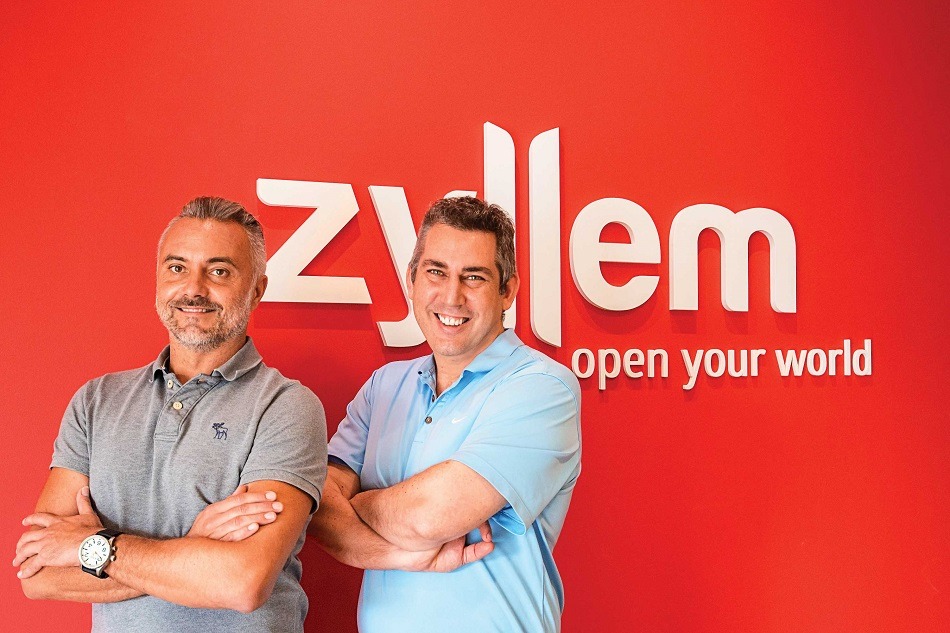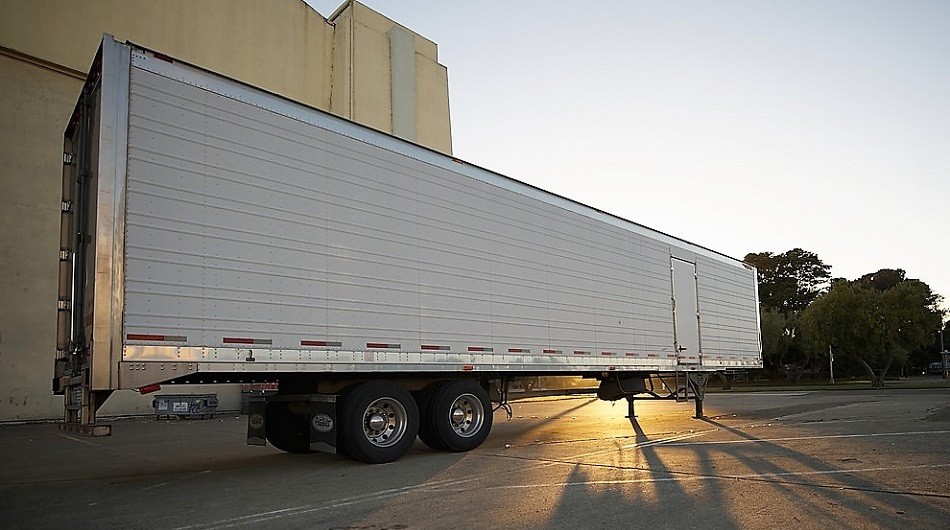
Zyllem’s Marco de Lorenzo (L) and Noam Berda. Photo credit: Zyllem.
When customers of ecommerce logistics startup Zyllem started getting emails about its services getting discontinued in Singapore, it seemed like curtains for the company. It turns out, however, that reports of Zyllem’s death were premature.
Zyllem, formerly RocketUncle, specialized in last-mile logistics. It used a combination of software tools and a fleet of delivery people to bring items to doors on the same day they were ordered, or at worst, the next day.
It was serving 30,000 customers, CEO Noam Berda tells Tech in Asia. Besides its Singapore office, it had opened branches in Malaysia and the Philippines.
Hard turn
And then, things changed. It didn’t happen overnight; the company wasn’t on the verge of bankruptcy; angry investors weren’t beating on the doors. But Noam could see there were problems with Zyllem’s path.
Managing its fleet and liaising with partners and clients started taking up too much of Zyllem’s time and resources.
“We were doing thousands of deliveries a day. We were positive on gross profit on the same-day business,” he says. Gross profit for its last-mile services was around US$0.70 to US$2.50 per delivery.
While gross profit does not take into account things like fixed costs, Noam is confident that the same-day delivery business could have become profitable eventually. But Zyllem would have to keep expanding and setting up offices outside Singapore if it wanted to generate enough revenue to cover the costs of maintaining a back office and development team.
Juggling fleet management, partners and clients relations, and technology research and development started taking a toll on Zyllem’s time and resources. And there was no clear way for the company to grow bigger, faster.
“The challenge I put to the team was, if tomorrow we had to go to 100 cities in China, would it mean we have to go rent 100 offices there?” Noam says. Something needed to change.
“The overall vision was to create this global Zyllem network for companies and consumers,” Noam explains. While it kept on developing tech for that purpose, the day-to-day of running a logistics business started dragging it deeper into that side of things. Not only that, but it colored the company in the eyes of others – for many, Zyllem was just a last-mile delivery startup, not a technology startup.
Scaling down to scale up
Coming from business software maker SAP, Noam’s background and calling is building tech. With that in mind, he made the decision to shift Zyllem to an all-software team.
So what’s Zyllem now? According to Noam, it’s “moving into pure technology” – a software-as-a-service company that enables last-mile logistics operators, rather than being an operator itself.
The core product team is building an online platform that’s meant to connect businesses to the right partners or to allow them to set up and run their own logistics network.
The idea is to combine the product team’s strength and the experience of running a logistics-focused company.
“Traditionally, logistics companies have legacy systems they want to replace,” says Marco De Lorenzo, a fellow SAP alum who’s joined Zyllem to run the commercial part of the business. “They’re moving more and more into ecommerce without middlemen in between, so they want to have an insight into logistics systems.”

Photo credit: Dave Fayram.
Zyllem’s platform can give them this insight, Noam adds. “As an enterprise, you need to have a place where you can manage your entire distribution process,” he says. “There isn’t a solution right now to allow you to manage your distribution networks. Lazada and others have to build their own software to do that.”
But for the multitudes of businesses who don’t have that option or just don’t want to deal with the complexity of the task, Noam hopes Zyllem’s platform will be just the ticket. “You’d be surprised how many last-mile operations in the region are still doing this on pen and paper,” he says.
Tough decisions
Zyllem started making the transition from a last-mile logistics startup to a straight up software company for most of 2016, starting around April last year.
The process wasn’t painless. The startup shed most of its workforce, including shuttering its offices abroad. Tech in Asia understands around 70 percent of Zyllem’s staff was working in services and the rest in product development.
By following the technology route, Zyllem doesn’t have to compete with everyone else in the ecosystem.
The startup’s 120-strong headcount scaled down considerably – its spacious, and now noticeably emptier, offices in Singapore’s Block 71 a testament to that.
“It’s tough,” Noam says of the decision to let people go. “The key element as the founder is that everyone looks to you to make the right decision. You don’t really know what is wrong and what is right, but one thing is for sure: at a certain point you have to make the decision and stick to it.”
The move to a software-only product is certainly timely as ecommerce surges in Southeast Asia, with Frost & Sullivan predicting the market will surpass US$25 billion by 2020. Meanwhile, giants Alibaba and Amazon have either descended or are preparing to land in this corner of the world.
And several startups that provide logistics and ecommerce services, like aCommerce and Anchanto – which just debuted an ecommerce software platform itself – as well as straight up logistics plays like Lalamove and Ninja Van, are fighting for their patches of the regional market.

Photo credit: ivantsov / 123RF.
Noam believes that by following the technology route, Zyllem doesn’t have to compete with everyone else in the ecosystem – it can work with them. Keeping up in a very competitive logistics market could mean burning some serious money, especially since Zyllem was looking to grow more aggressively.
Conflict could also result from Zyllem running its own logistics network while at the same time trying to get another logistics company to use its technology services – making the other company at once a client and a competitor. “We decided instead to let them do the job and we can enable them,” he says.
At this early stage, Noam seems happy with the change. Without having officially launched the product, the company has already signed a handful of enterprise clients in Singapore and the Philippines. Its biggest client so far is Zuellig Pharma, a large distributor of pharmaceuticals in Asia.
Noam feels this allows the company to scale much faster and in a more sustainable way. “[Before] we were doing couple of thousand of deliveries a day,” he says. “Even mature companies or other startups are in the range of 10,000 daily transactions or so. One enterprise we’re working with now can do 150,000 deliveries a day.”
Zyllem is now looking to raise new funding to help it down its new path. Running a leaner operation should help it keep costs down and lead to increased revenue.
Noam is hopeful the market is large enough for the startup to find its place in it. “Our approach is partnerships – let’s do it together. I think it will allow us to create a better product for our customers.”
Converted from Singapore dollars. US$1 = S$1.42
This post After quitting same-day delivery and laying off staff, this startup pivoted to software appeared first on Tech in Asia.
from Tech in Asia https://www.techinasia.com/zyllem-last-mile-logistics-pivot
via IFTTT
Great post that you shared in a good way. Thanks for sharing this article.
ReplyDeleteEcommerce Services
Data Extraction Solutions
payment gateway companies